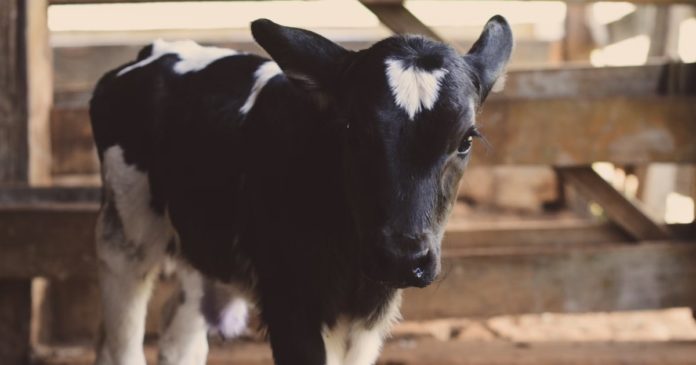A recent study by researchers from University of Padova in Legnaro Italy evaluated the effect on behavior patterns of veal calves fed increasing levels of hempseed cake (HSC) diluted in their milk replacer, with encouraging results.
Hemp seed cake is a by-product of cold pressing hemp seeds to extract oil for human consumption. While a waste product, the cake retains good levels of protein and other important nutritional elements, making it ideal for use as animal fodder. Because these animals may be used in human food, there’s been a fair bit of caution and bans remain in place in many jurisdictions for this type of feed.
But animals certainly seem to like it and thrive when fed with HSC.
The study of 48 Belgian Blue veal calves (12 females and 36 males) involved feeding with increasing levels of hempseed cake diluted in the milk replacer. The calves started with an average body weight of 62.0 kg and age of 42.6 days, and were randomly assigned to of a HSC inclusion levels of 0% (CTR), 3% (T3), and 6% (T6).
The study, which lasted for 6 months until slaughter, including using video cameras provided with a surveillance system to monitor behaviour.
“The results indicated that HSC had negligible effect on calves’ behavior and that calves, in general, spend most of their time resting and ruminating as they normally do with conventional diets,” state the researchers. And furthermore: “Hempseed cake inclusion (T3 and T6) increased (P < 0.05) the appetite for solid food and licking behavior during the late afternoon.”
While the highest level of hempseed cake inclusion increased the female calves’ movement during late afternoons, male calves decreased their positive interaction, movement, and cross-sucking in the late afternoon as the inclusion of HSC increased.
“Considering the findings given above, the inclusion of hempseed cake into veal calves’ diet can be suggested, but further studies on different breeds and individual ages and the relationship between the cannabinoid content of hemp would be interesting for a better understanding of this novel ingredient,”
The study has been published in the journal Frontiers In Veterinary Science.


